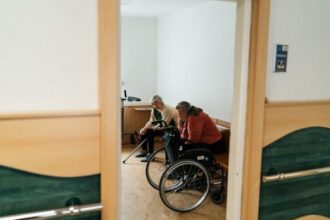A recent investigation carried out by the University of Eastern Finland has shed light on the intricate and overlapping barriers that impede older immigrants and immigrants with dementia from accessing social and healthcare services in Finland. Published in the Journal of Cross-Cultural Gerontology, the study draws on the perspectives of professionals who work closely with these populations, revealing how multiple, interconnected challenges affect service accessibility. Rather than existing in isolation, these barriers tend to reinforce one another, compounding the difficulties faced by vulnerable immigrant groups.
Among the most prominent issues are linguistic limitations, a lack of familiarity with digital tools, and insufficient awareness of legal rights or the range of social and medical services available. These issues are further exacerbated by an absence of supportive social networks, such as family and friends, as well as by instances of neglect or even abuse. Cultural disparities and differing conceptualisations of illness and care also contribute to these access gaps, revealing a need for more nuanced and inclusive approaches within Finland’s welfare and healthcare systems.
One of the study’s key findings is language’s role in magnifying other forms of exclusion. Difficulty with Finnish or Swedish, the country’s official languages, impairs older immigrants’ ability to communicate directly and limits their capacity to navigate increasingly digitalised public services. Individuals may remain unaware of their entitlements or assistance without digital literacy or language proficiency. For immigrants with dementia, the situation is particularly complex. Cognitive decline may lead them to forget previously acquired second languages, increasing their reliance on their mother tongue at a time when institutional support may be least accessible in that language.
The lack of close family ties or friendships—often a source of informal support in navigating bureaucratic systems—further isolates these individuals and heightens their vulnerability to mistreatment. Older immigrants frequently struggle to benefit from language instruction programmes designed for the general immigrant population, which may not be tailored to the needs of elderly learners. As a result, even services intended to promote inclusion can inadvertently exclude those who are older or experiencing cognitive decline. This points to the necessity of more targeted interventions and adaptive teaching methods for these subgroups.
Despite these challenges, the study also identifies avenues of support that can mitigate access issues. Family members, immigrant communities, and non-governmental organisations (NGOs) frequently serve as intermediaries, helping individuals understand and access services while alleviating some of the demand on state-run systems. However, these entities are often under-resourced and rely heavily on volunteers or limited funding. The researchers stress that increased governmental backing for such organisations is beneficial and essential if Finland hopes to create a more equitable service environment.
Dr Alex Berg, a doctoral researcher involved in the project, emphasised the importance of practical solutions informed by service users’ lived experiences. One recommendation is recruiting more bilingual staff across social and healthcare services. This would enable older immigrants and those with dementia to seek help independently in their native language, reducing their reliance on family members or interpreters. Providing information about services in multiple languages is another vital step in ensuring equitable access and empowering immigrants to assert their rights within the system.
Finally, the study calls for a shift in how service providers approach immigrant clients. Rather than relying on assumptions or stereotypes, professionals are encouraged to treat immigrants like any other client while remaining sensitive to the cultural values and specific challenges that shape their experiences. This dual awareness—of shared humanity and individual context—could be key to bridging the service gap for older immigrants and those living with dementia. The findings underscore the urgent need for systemic changes that are culturally informed, linguistically inclusive, and responsive to the needs of an increasingly diverse ageing population.
More information: Alex Berg et al, Barriers to Accessing Care and Support Services for Older Immigrants and Immigrants with Dementia in Finland: Perspectives of Professional Social and Health Care Providers, Journal of Cross-Cultural Gerontology. DOI: 10.1007/s10823-025-09523-2
Journal information: Journal of Cross-Cultural Gerontology Provided by University of Eastern Finland








